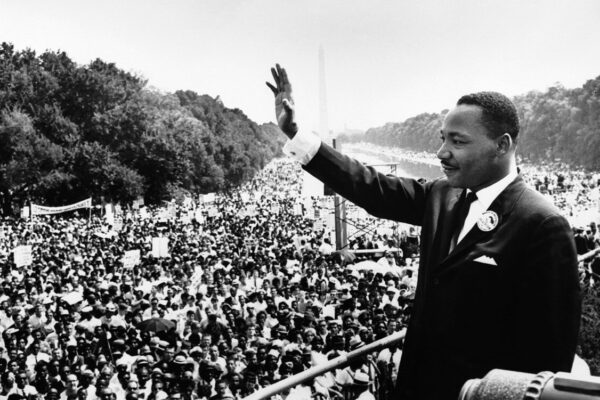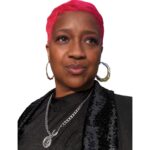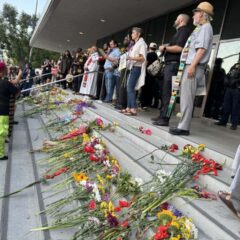This post originally appeared in the Los Angeles Sentinel.
In Dr. Martin Luther King’s posthumously published essay, “A Testament of Hope,” he wrote, “It is forcing America to face all its interrelated flaws—racism, poverty, militarism and materialism.”
In the past seven years, like it or not, our nation has had to face all its interrelated flaws—racism, poverty, militarism and materialism; and sexism—as represented by the wave of hashtags from #TrayvonMartin to #Metoo.
Those who have used their privilege to silence, repress and even oppress black and brown men and women, immigrants, LGBTQ and other vulnerable people groups are feeling the pinch and pressure from activists and everyday people determined to force America to take a deep look within her soul and change. To be sure, change will be slow and difficult; but it will come.
I don’t often indulge in the “what if” question, but “if” Dr. King were alive, I do believe he would welcome the present climate, because he understood the value and consequence of “speaking truth to power.”
The unpleasant realities that are being exposed today, in ways in which we have not seen in decades, is making America face her interrelated flaws. Moreover, in facing those flaws, we the people are equally challenged to speak up, speak out, stand up, stand for or stand against. We cannot allow our response to be deafening silence. It is deafening silence that allows those “interrelated flaws” to flourish.
It is reported that for 2017, one of the words researched most online was “complicit.” Silence is complicit behavior that will not be tolerated. Corporations, celebrities, major athletes and politicians are all fair game for exposure if they are complicit in times like these.
This too includes the church! As we reflect on the legacy of Dr. King, it is my hope the present climate spurns a revival of the church’s voice, where it has gone silent and become complicit.
We cannot raise the horn for Jesus, then sing loud, “We shall Overcome,” but only whisper about racism, poverty, sexism, militarism of the police and materialism that is crippling our communities. There is a balance the church must find or develop in order to maintain its relevance and righteousness.
This was King’s charge when he launched the Poor People’s Campaign in 1968. Today, I am encouraged by the number of faith-led movements on the rise to force America to face her flaws; one in particular is the new Poor People’s Campaign, reignited by faith leaders across the country.
It will not be King’s campaign, it will be ours; our responsibility, our voice, our time to make America face all its interrelated flaws…and change.
Rev. Najuma Smith is Assistant Director of Community and Public Engagement with the USC Center for Religion and Civic Culture.





